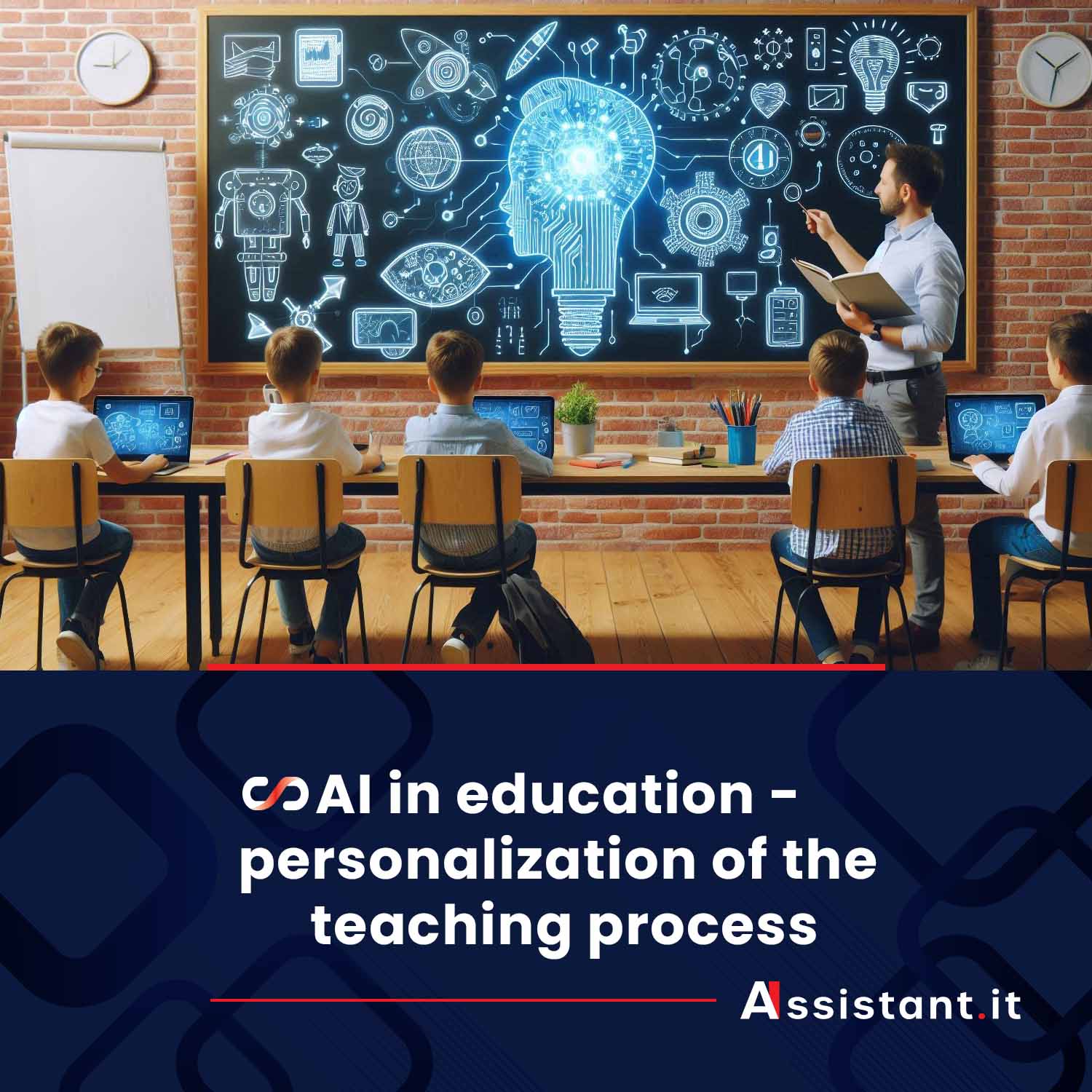Modern education faces significant challenges, including diverse student needs, an overwhelming amount of information, and the necessity to prepare young people for a rapidly changing technological environment. Artificial intelligence (AI) is emerging as a key tool in overcoming these challenges, particularly in the personalization of the learning process. AI enables tailoring education to individual student needs, leading to greater learning efficiency and increased satisfaction for both students and teachers. But how can this be achieved?
What Is Personalization in Education? The Role of AI
Personalized learning is an approach that adapts the educational process to the individual needs, skills, learning pace, and preferences of each student. Instead of following a one-size-fits-all curriculum, personalization recognizes that students have different learning styles and paces of knowledge acquisition. Supporting their individual development requires flexible and adaptive methods and tools. Traditional teaching methods often struggle to meet these varied needs, which is why AI opens new possibilities in this area.
AI, particularly machine learning-based models, provides tools that enable learning process personalization. AI can analyze student performance data, learning styles, strengths, and weaknesses, and then deliver educational content tailored to each student’s individual needs.
For example, AI can dynamically adjust educational materials to match the student’s proficiency level. If a student excels in a subject, the system can suggest more advanced tasks, while if they struggle, AI can repeat topics or provide additional resources, such as videos or interactive exercises.
Additionally, AI-powered learning paths can be created based on student progress. Algorithms analyze performance trends and predict which topics are most crucial for a student, delivering materials in the optimal sequence. This optimization enhances learning effectiveness and enables students to achieve better results in less time.
By analyzing data gathered during lessons, AI can also develop detailed learning plans tailored to each student’s goals, learning style, and preferences. The system can continuously monitor progress and make real-time adjustments to the learning plan.
AI as a Support Tool for Teachers
Teachers remain the key figures in the learning process, but AI can assist them by providing tools to better understand student needs and optimize teaching methods. For example:
- AI can generate detailed reports on student progress, identifying areas where students struggle and suggesting targeted interventions.
- AI can automate assessments for some assignments, reducing the workload for teachers. AI systems can be used not only for grading multiple-choice tests but also for analyzing more complex responses, such as essays or spoken answers. However, in these cases, human oversight remains essential to ensure accuracy.
- AI can suggest the most relevant educational materials for classroom instruction, helping teachers adapt content to the needs of their students.
Benefits of AI-Powered Learning Personalization
Personalizing the learning process with AI brings several advantages:
✅ Students learn at their own pace, improving knowledge retention and comprehension.
✅ Higher motivation – When content aligns with students’ interests and skill levels, they engage more actively in learning.
✅ Increased efficiency – AI identifies knowledge gaps and optimizes learning paths, ensuring better outcomes in less time.
Real-World AI Applications in Education
Modern AI-driven education platforms already offer a range of tools that enhance personalized learning. Platforms such as Coursera, Udemy, and Khan Academy use AI to adapt courses and recommend content based on student progress and preferences.
Additionally, AI can function as a virtual tutor, providing personalized guidance and real-time answers to student questions. Such systems operate 24/7, offering support beyond traditional school hours.
Language-learning apps like Duolingo and Babbel utilize AI to adapt lessons to a user’s skill level and learning pace, making language acquisition more efficient.
The Future of AI in Education
AI is redefining education, making learning more accessible, personalized, and engaging. As AI technology continues to evolve, its role in education will expand, helping both students and teachers navigate the complexities of modern learning.
Discover how the AIssistant.it system can accelerate daily tasks and processes in your company with the help of AI tools: https://aissistant.it/contact/
Graphics by: Microsoft Designer AI


